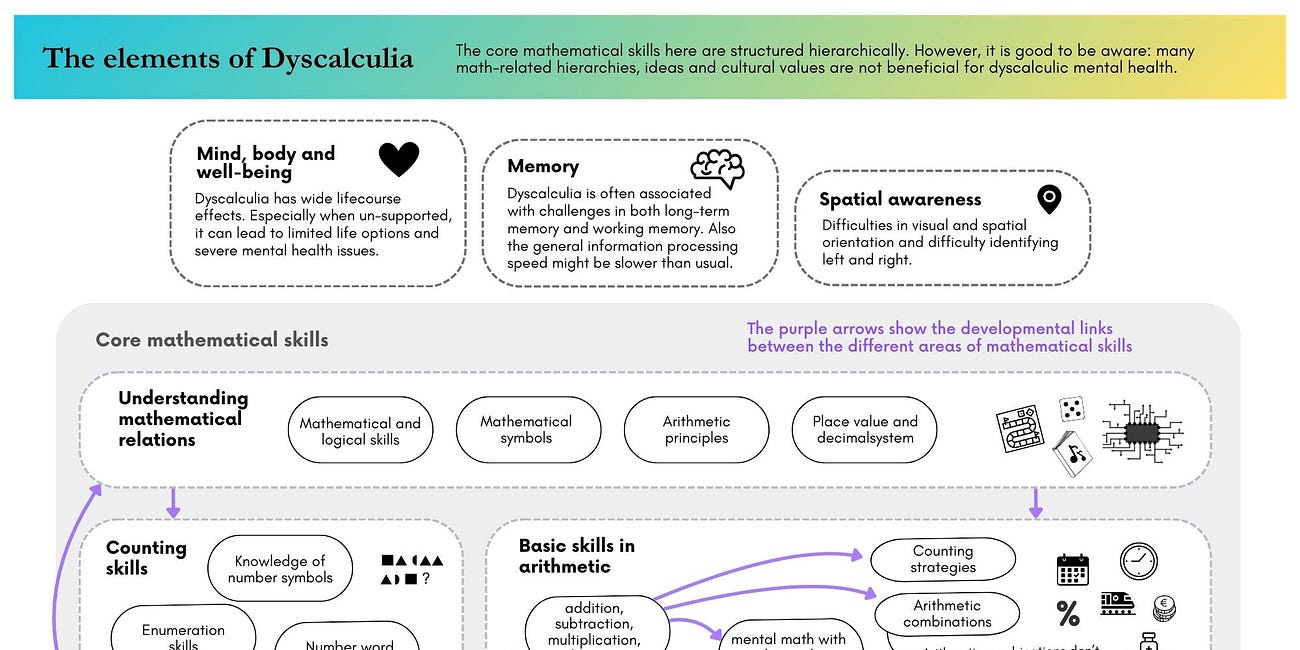This mind map is not a diagnostic tool, but it can help to recognize everyday challenges and issues that are often associated to dyscalculia. The author of this resource is an educator, qualified teacher, and a bachelor of social services. And also someone with lived experience on dyscalculia. The research and sources used for this mind map are summarized in here.
Allies, we need your help!
There are as many dyscalculic people in the world as there are, say, ADHD people, or dyslexic people. However, dyscalculia visibility and representation is very low, even though people with dyscalculia, like other neurominorities, would benefit from support and information.
There is a lot of shame associated with poor numeracy. As a result, some dyscalculic people can even be reluctant or unwilling to share, for example, dyscalculia-related social media content on their own social media. Doing so would feel, in many ways, too vulnerable for them.
So if you are someone with “normative” or good numeracy skills, I encourage you: give this article a like, or share it. We truly and genuinely need the help of allies in raising awareness around dyscalculia!
Feedback & thoughts?
Would you like to give feedback? Is there something, that you found especially useful in the mind map? Or do you think there’s something missing, that should be included in the picture? I would love to hear your thoughts, send me a message and let me know!
xxxSasu
Concept map / The elements of Dyscalculia
The first and the second chapter of this article give information about the content of this concept map and a brief description of the life impacts that are often associated with dyscalculia.






I'm so disabled by this. Thank you for the wonderfully comprehensive graphic.
This mind map is a great resource. I often have trouble articulating what dyscalculia is for me beyond “bad at math” and that never felt quite right